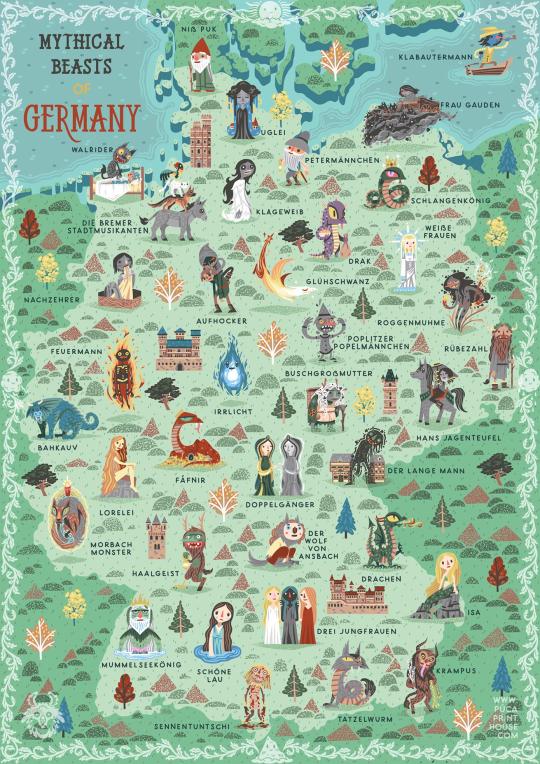Photo

Mythical Beasts of Germany
by u/NeilParkinsonMakes
5K notes
·
View notes
Text
when you're speaking English and you use more "refined" vocabulary

when you try and speak plainly

852 notes
·
View notes
Text
whenever someone calls USAmerican English the 'movie accent' I remember how somewhere last year I was on a train when suddenly the silence was broken by an american voice behind me somewhere and I immediately thought "Oh no, someones playing their tiktoks out loud again" and automatically turned around to put a face to my annoyance like you do when someones driving bad, and turns out a few rows down were just some actual in the flesh USAmericans having a nice conversation amongst themselves. I am sorry Americans I'm glad they let you out of the phone
128K notes
·
View notes
Text
the difference between the vowel sounds in “lot” and “thought” successfully stunlocked me for about ten minutes
oh I did a joke version of this before but I should do it for real too
710 notes
·
View notes
Text
i love when words fit right. seize was always supposed to be that word, and so was jester. tuesday isn't quite right but thursday should be thursday, that's a good word for it. daisy has the perfect shape to it, almost like you're laughing when you say it; and tulip is correct most of the time. while keynote is fun to say, it's super wrong - i think they have to change the label for that one. but fox is spot-on.
most words are just, like, good enough, even if what they are describing is lovely. the night sky is a fine term for it but it isn't perfect the way november is the correct term for that month.
it's not just in english because in spanish the phrase eso si que es is correct, it should be that. sometimes other languages are also better than the english words, like how blue is sloped too far downwards but azul is perfect and hangs in the air like glitter. while butterfly is sweet, i think probably papillion is more correct, although for some butterflies féileacán is much better. year is fine but bliain is better. sometimes multiple languages got it right though, like how jueves and Πέμπτη are also the right names for thursday. maybe we as a species are just really good at naming thursdays.
and if we were really bored and had a moment and a picnic to split we could all sit down for a moment and sort out all the words that exist and find all the perfect words in every language. i would show you that while i like the word tree (it makes you smile to say it), i think arbor is correct. you could teach me from your language what words fit the right way, and that would be very exciting (exciting is not correct, it's just fine).
i think probably this is what was happening at the tower of babel, before the languages all got shifted across the world and smudged by the hand of god. by the way, hand isn't quite right, but i do like that the word god is only 3 letters, and that it is shaped like it is reflecting into itself, and that it kind of makes your mouth move into an echoing chapel when you cluck it. but the word god could also fit really well with a coathanger, and i can't explain that. i think donut has (weirdly) the same shape as a toothbrush, but we really got bagel right and i am really grateful for that.
grateful is close, but not like thunder. hopefully one day i am going to figure out how to shape the way i love my friends into a little ceramic (ceramic is very good, almost perfect) pot and when they hold it they can feel the weight of my care for them. they can put a plant in there. maybe a daisy.
12K notes
·
View notes
Text
people understand that Spanish speakers speak different dialects of the Spanish language but don’t understand that black people speak a dialect of the English language
173K notes
·
View notes
Text
I love the phrase "they get along like a house on fire". It's perfect. You and me have perfect chemistry and it's setting off the carbon monoxide detectors. People are calling emergency services to get us to stop being so chummy. Someone died
99K notes
·
View notes
Text
i love it actually when nonnative speakers make mistakes that reveal how their native languages work.
lots of koreans online say they "eat" drinks which would assume they only have one word which covers the concept of consumption.
arabic immigrants in sweden (my mother included) have a hard time differentiating between "i think/i believe/my opinion is" which suggests that in arabic these different modalities of speaker agency is treated as one or at least interchangeable.
swedish speakers in english will use should/shall/have to/must with much higher nuance precision than native english speakers, to the point where they sound well awkward, because the distinction between these commands in swedish is much clearer than in english. i make mistakes between is/am/are and has/have constantly because swedish only has one pronoun covering all grammatical persons.
i've heard speakers of languages without gendered pronouns (finnish, the chinese dialects, and a tonne more) make he/she mistakes because it's hard(!!) to learn two or more gendered pronouns and when to use them correctly.
how neat is that?! it add a charm to international english usage in particular and make our appreciation of both our native languages and our learnt ones stronger...!!
55K notes
·
View notes
Text
I’m learning Russian by osmosis from classic rock of the USSR. Droog means friend and droog drooga means each other. Isn’t that sweet?
24 notes
·
View notes
Text
I love the term “loanwords” because it implies that you intend to give them back.
72K notes
·
View notes
Text
I think non-Germans might not be aware of this because there's rarely a way to naturally stumble upon it but
GERMAN IS INSANELY REPRESENTED ON WIKIPEDIA
I rarely see wiki entries (that aren't hyperspecific to a country or culture) that don't have a German page!
In fact:

["Number of German articles on Wikipedia by 2023 (... in) June there were 2.8 Million German articles on Wikipedia. This places the German wikipedia on the third place of the ranking, whcih is lead by the English version with around 6.7 Million articles."]
41% of the English Wikipedia exists in German!
This is a literal goldmine of content!!
Read about your interests! Look up your favorite celebrities! Read summaries of books, movies, mythologies, whatever your heart desires!!!!
Want to read but don't know what to search for?
The homepage of the German Wikipedia (https://de.wikipedia.org/wiki/Wikipedia:Hauptseite) is updated everyday with
- an article of the day
- on this day in the past
- in the news
- recently deceased
- did you know?
for you to peruse.
And of course, the German version has a "random article" function too! It's called "Zufälliger Artikel" or "Zufällige Seite" and can be found on the left side of the screen (laptop) and in the popup menu on the left side (mobile)!
327 notes
·
View notes
Text
A little German text style guide
Here are some rules about how to use quotation marks, dates, times, numbers, and addresses in German texts:
Quotation marks:
Quotation marks in German texts usually look like this:
„Hallo, ich heiße Espen.“
„Ich glaube nicht“, sagte er, „aber ich bin mir nicht sicher.“
Er sagte: „Ich habe einen Apfel gegessen.“
Date:
The date is written in the form day/month/year, usually like this:
am 3. August 2023 (read: "am dritten August 2023")
am 03.08.2023 (read: "am dritten August 2023")
Time:
The time is usually stated in a 24 hour format (otherwise you add 'in the morning' or 'in the evening' to clarify):
Es ist 18:40 Uhr. (read: "Es ist 18 Uhr 40")
Es ist 4 Uhr nachmittags.
Numbers:
The points and commas in numbers look like this:
eleven thousand = 11.000 (e.g. 11.000 Maschinen)
eleven point three = 11,3 (e.g. 11,3% Umsatz)
Address:
Addresses on letters are usually written like this:
Max Mustermann (first & last name)
Musterstraße 11 (street name & house number)
12345 Musterstadt (postcode & city)
Germany (country)
382 notes
·
View notes
Text
I started Hebrew, which is why I’ve been dead on this blog, but I don’t think I can ever properly convey to you guys the sheer cultural whiplash of spending years learning Japanese from Japanese teachers and then trying to learn Hebrew from an Israeli
Japanese: you walk into class already apologizing for being alive
Hebrew: you walk into class, the teacher insults you and you are expected to insult her back
Japanese: conjugates every single verb based on degree of intended politeness, nevermind keigo and honorifics
Hebrew: Someone asked my teacher how to say “excuse me” and she laughed for several seconds before saying we shouldn’t worry about remembering that since we’ll never need to say it
Japanese: if you get one stroke wrong the entire kanji is incomprehensible
Hebrew: cursive? script? fuck it do whatever you want, you don’t even have to write the vowels out unless you feel like it
Japanese: the closest thing there is to ‘bastard’ is an excessively direct ‘you’ pronoun
Hebrew: ‘bitch’ translates directly
259K notes
·
View notes
Text
Some internet language things I really like:
Phrases like “that’s certainly a thing”, “it’s so shaped”, or “one of the most animals” (is there a name for this?)
when people write with little to no punctuation like they are just so done
More specifically, asking questions without punctuation i.e. ‘what’ or ‘why’. It’s like, you want to know but also you are resigned to the answer?
When people capitalise The Thing for emphasis - particularly if they add a trademark symbol to really drive The Point™ home
How we use both bold and italic text for emphasis, but they convey it in different ways and I can’t quite explain how
Responding to things exclusively with punctuation, because sometimes words fail you and all you can say is !!!
67K notes
·
View notes

